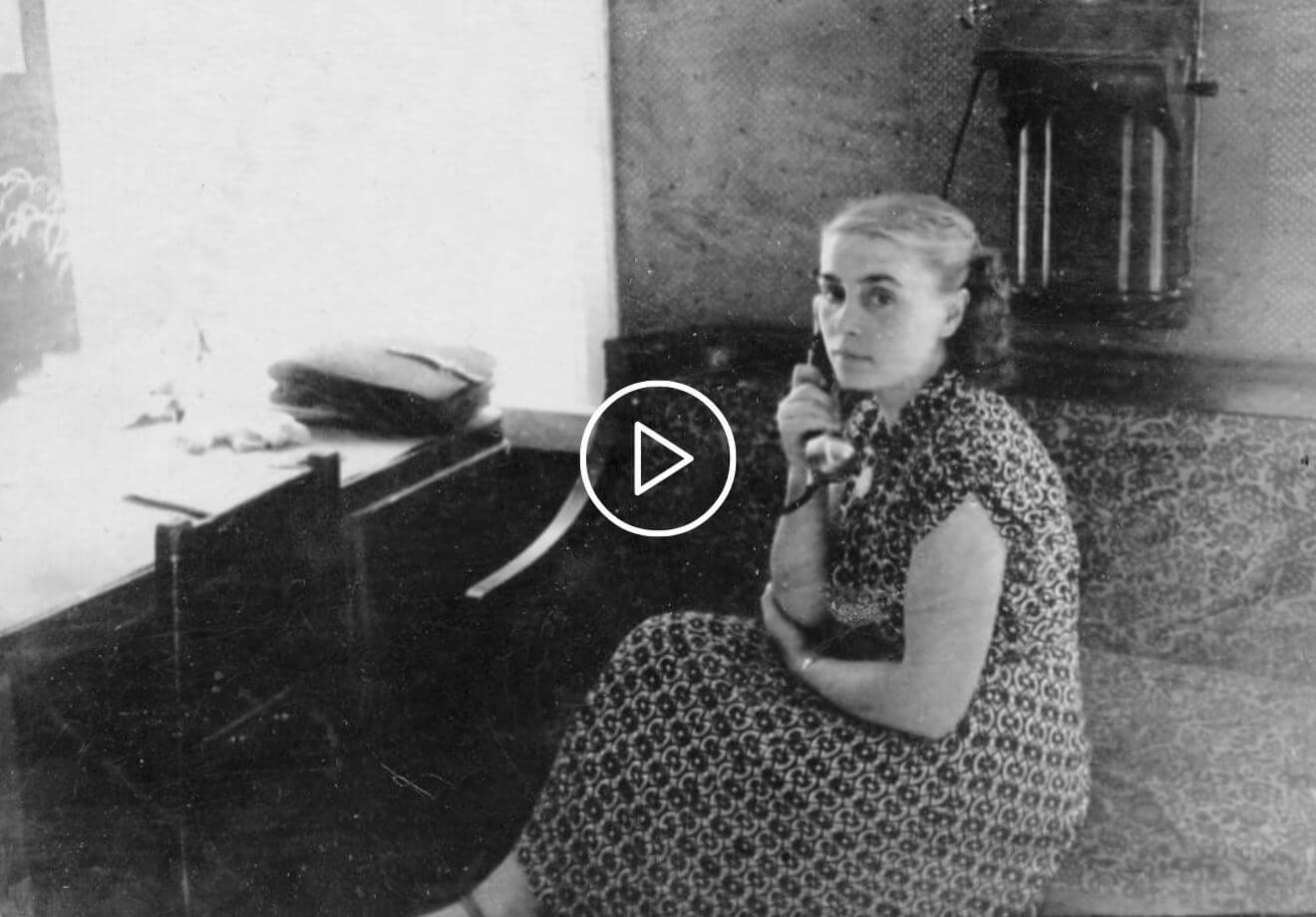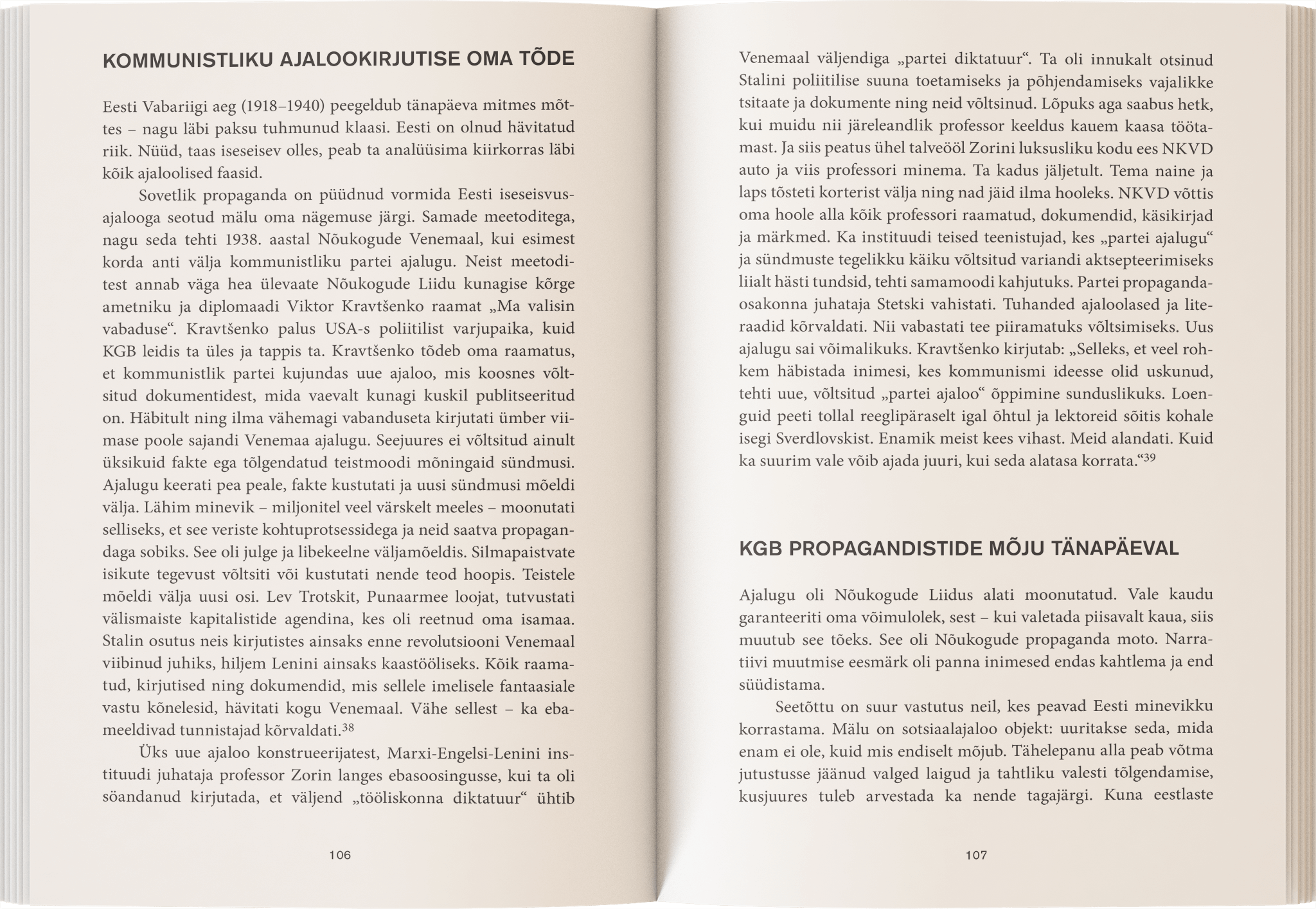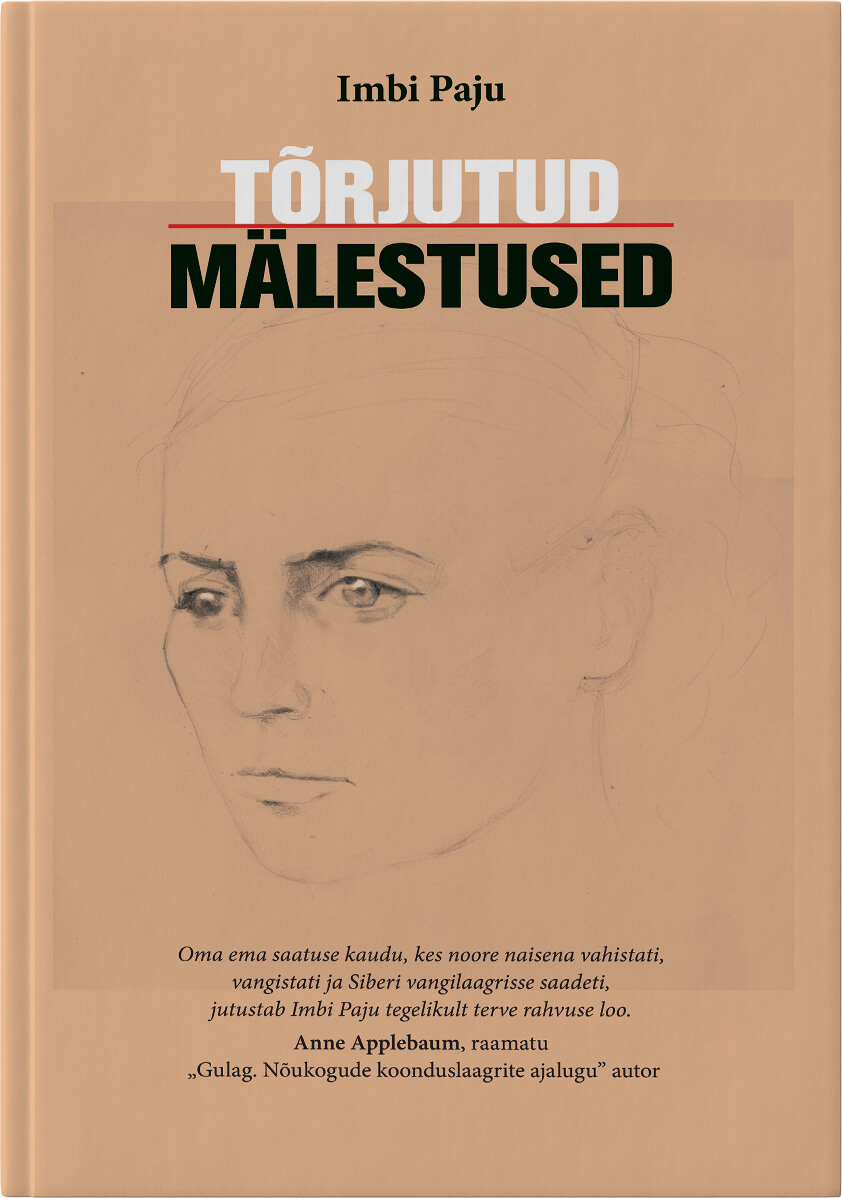
Memories Denied
Memories Denied by Imbi Paju /Tiina Kaia Ets, translator
Memories Denied: During the Soviet occupation in the 1940s and 1950s, tens of thousands of Estonians were arrested and deported to Siberia. Among them were Imbi Paju’s mother and her twin sister. For those who grew up in this time of the terror, denial of memories was the only way to survive.
Memories Denied emerged from Imbi Paju’s need to understand her mother’s experiences. She has interviewed people who lived through the Soviet occupation of Estonia in psychoanalytical and philosophical terms, in which the traumatic experiences suffered by an individual are set against the background of major historical events.
Memories Denied shows us how the tragedy of an individual family repeated over and over gradually becomes a national tragedy, a part of the collective but interrupted European narrative, silenced by occupations and practical politics. The weakening and destruction of memory, of intimacy, of family ties was one of the goals of Sovietization.
The book has been published in Estonian, Finnish, Swedish, Russian, German, English, Hungarian, Romanian and Ukrainian.
Feedback

Reviews

Anne Applebaum
author of Gulag: A History (2003), on the Soviet prison camp system, which won the 2004 Pulitzer Prize for Non-Fiction.
“By describing the fate of her mother – arrested, imprisoned, deported to the Gulag as a young woman – Imbi Paju has, in effect, told the story of an entire nation. Widely admired in her native Estonia and elsewhere, Memories Denied could bring that country’s history alive for many others too.”

Edward Lucas
author of The New Cold War (2008)
"Imbi Paju’s book opens doors into dark rooms. Let them flood with sunlight. And let others follow the same example."
"An important change in the Estonian culture of remembrance was signaled in the mid-2000s by Imbi Paju’s documentary Memories Denied (2005) and her popular history book by the same name. When the film, which had been released in Finland, was first shown in Estonia it provoked a strong emotional response both from renowned cultural critics as well as from a wider audience, as if the Soviet deportations and the Gulag had been addressed for the first time. After two decades of working through the painful memories of Soviet oppression, the film seemed to have captured its impact on people’s lives."
Eneken Laanes
- Professor of Comparative Literature, Tallinn University -
"During the Soviet occupation of Estonia in the 40s and 50s, tens of thousands of people were sent to the Siberian gulags, with Imbi Paju’s mother among them. The author’s memoir Memories Denied constitutes an attempt to come to terms with this dreadful past through reading and writing her mother’s memories. The present article argues that there are complex connections between the imagined and lived experiences of trauma in the memoir, as the author’s (re)constructions of the past are inextricably tied to that of her mother’s, in that Paju does not deny her mother’s memories in order to survive, but dwells in them. Through such a process, which can be called archaeology of subjectivity in the sense that she constructs a self and a persona in large part by excavating through the self-constitutive memories of the previous generation, the article focuses on the transgenerational transmission of trauma through the gendered conduit of remembrance, which is the mother. Memories Denied is, more than anything, an intriguing example of how individual consciousness infuses collective imaginaries. As the repeated tragedy of a single family through the retelling of stories becomes a national tragedy deeply rooted into a fragmented, European narrative, the reading and writing of Imbi Paju’s maternal memories challenges the Soviet politics of destroying memory, intimacy and family ties in the name of a superior, supposedly stable sense of identity."
Andreas Athanasiades
- University of Cyprus, Doctor of Philosophy (Ph.D.) -
"Memories Denied resonates powerfully with the works of renowned intellectuals and writers, such as Still Alive, the memoirs of Holocaust survivor Ruth Kluger, or Crabwalk, the novel by Günther Grass."
Thomas Salumets
- Assoc. Prof. Emeritus, University of British Columbia, 2019 -
"Imbi Paju’s book (Memories Denied) is equally impressive and necessary. It focuses on the denial of atrocities suffered in Estonia during the Soviet occupation: both the unspeakable and the unspoken. On the one hand it is about the denial of the victim. And on the other, it is a history of perpetrators and the dark powers that followed. Imbi Paju’s book is an important contribution to a critical update of cultural memory in Europe. Such stories are critical, because only they can remind us how secretly memories can be denied. As the author says, it is personal memories that give history a human face. The book does, however, also reflected on the larger story: the history of a country that aspires to retain its independence – and has put its hopes into the EU for freedom and security."
Prof. Dr. Peter Hanenberg
- Professor of Cultural Studies, Universidade Católica Portuguesa, Lisbon -
"In 2020, Memories Denied was designated a contemporary literary classic in Finland by Like Publishers. The international journey of Memories Denied, which was initially published in 2006, is testament to the timelessness of the book. It contains meanings to be discovered at different points in time and among different generations. Let us be glad that it has returned to us. The book gives us a deeply meaningful reading experience that continues to provide lessons of discovery about humanity and the fate of a single small person amid the storms of history."
Mari Hyrkkänen
- Editor and department head of Like Publishers in Finland -
"Written by author and film director Imbi Paju, Memories Denied is an impressionist work of art, which creates its images by abandoning the traditional rules and techniques of historical writing, instead using psychology, psychoanalysis, belles-lettres, philosophy, historical facts, personal memories of her countrymen, and the recollections of those close to her. It succeeds in creating an image of what a violent regime can do to people, showing the evil that man inflicts on man when the darkness lurking within his soul seizes power and when the political atmosphere fosters this kind of violence, and showing how a dictatorial regime manipulates remembering in order to hide its criminal actions.
The narrative emerges from Estonia’s experience, from the author’s own family story and personal childhood memories. In her work, Paju is not saying “never again!” On the contrary, the book tells us that events such as these might well happen again. If we make no attempt to keep remembering, we shall never escape the consequences. This book explains how violent regimes founded on totalitarian philosophies persuade people to follow them, thereby stripping them of all their humanity.
The early 1940s saw the immediate imposition of the Russian SSR Criminal Code, which defined the “objective enemy”– a bandit, an enemy of the people, a kulak, an undesirable element, a hostile nation. According to the renowned Gulag researcher Anne Applebaum, every memoir, every document on the history of the Gulag is but a fragment of the puzzle, a fraction of the explanation. Without these pieces, we might wake up one day not knowing who we are. And without these pieces, words such as “human rights”, “compassion” and “trust” will become mere clichés."
Toomas Hendrik Ilves
- President of Estonia (2006-2016) -
2006
[Memories Denied]
Toward a happier history
I have stood in that NKVD prison yard to which my mother and her twin sister were taken as 18-year-old girls. There were taken there under Section 59, which dealt with especially dangerous crimes against the order of government, the kind which could shake the very foundations of the governmental and economic power of the USSR and its union republics. In other words: assisting the resistance fighters known as the Forest Brothers.
Helmi Visnapuu’s mother, whom the NKVD had also arrested for giving aid to the Forest Brothers, had watched two young Forest Brothers being taken across the prison yard to interrogation. The boys were shuffling along on their knees, because at one interrogation, their feet had been nailed to the floor with large nails. The wounds on their feet were now suppurating, and they could move ahead only on all fours.
I have walked along the twilit and convoluted paths of memory, seeking to understand the past, its emergence, the attempts to reinterpret it, and the interruptions that have plagued it. I have approached the most painful events and places with caution. I spent four years making the film Memories Denied, charting a lost identity, immortalizing names and places...
My quest itself has been like an enormous NKVD prison building, with doors and entryways throughout, arched underground vaults dripping with dampness. Somewhere, a stairway leads down to a sauna. The official who accompanies me cannot unlock the door; the keyhole is caked with rust. Finally, when the door is opened, the official warns me to look out for the large rats that might skitter out of the room. Before her death, the former political prisoner Linda Krinka told me how she hated those trips to the sauna, the humiliating treks with the women being escorted by armed and uniformed Soviet soldiers. I will try to spare myself and my mother by not asking her about these processes.
Some people have told me that my mother and the other women whom I have interviewed are not victims at all, because they are still alive. They are not real victims, in the truest sense of the word. They are survivors; they are competent women. They have experienced moments at the limit; moments when death was all too near. Survival and victimhood give them the right to condemn a violent system of government. They are the witnesses to the crimes of this system; it is this that gives them human greatness and dignity.
Researches
Imagining Pasts, Writing Lives—Familial Narratives, Memory, and the ‘Ideological I’ in Imbi Paju’s Memories Denied - Athanasiades, Andreas
Estonian Human Development Report 2016/2017. Estonia at the Age of Migration. Transnationalisation of the Estonian memory culture - Eneken Laanes
Some quotes about Memories Denied by Imbi Paju
“Making my way through my parents’ experiences with joy and death gave me an opportunity to record something new, something on the other side of revenge and oppression; it is something that generates peace of mind, knowing that one has the courage to speak up now, when it is allowed, when one will not be punished for it.”
“It is as if rewriting the past in a poetic style transforms my thought process into a sacred ritual – an ameliorative force. It needs to be done before collective memory is lost, while it is still unchanged, to be made into worldwide creative endeavor, into a picture collage of time and human pain.”
Book covers
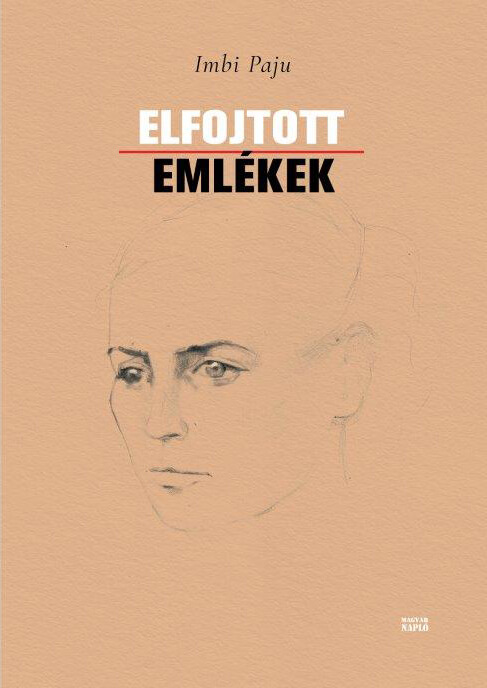
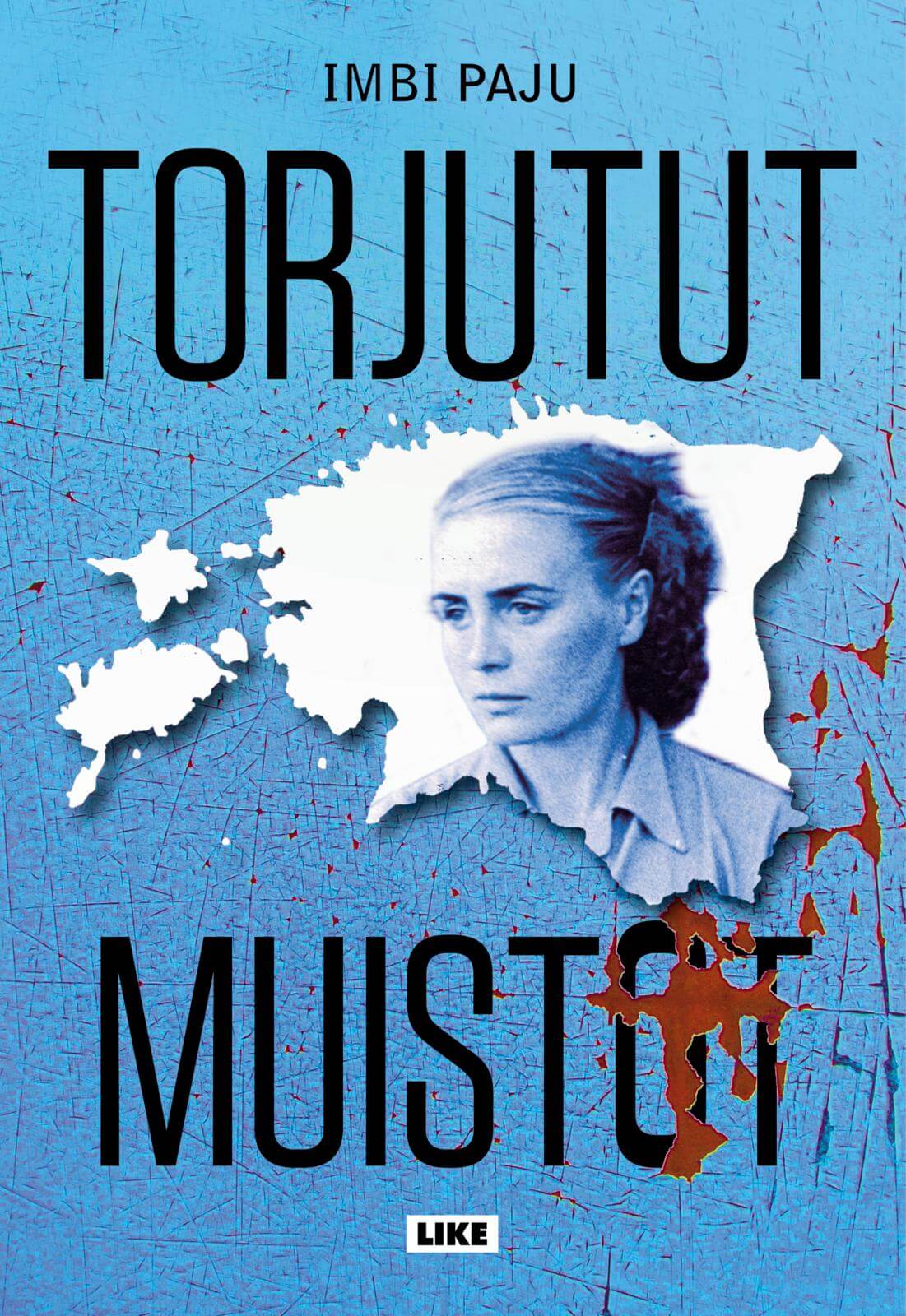
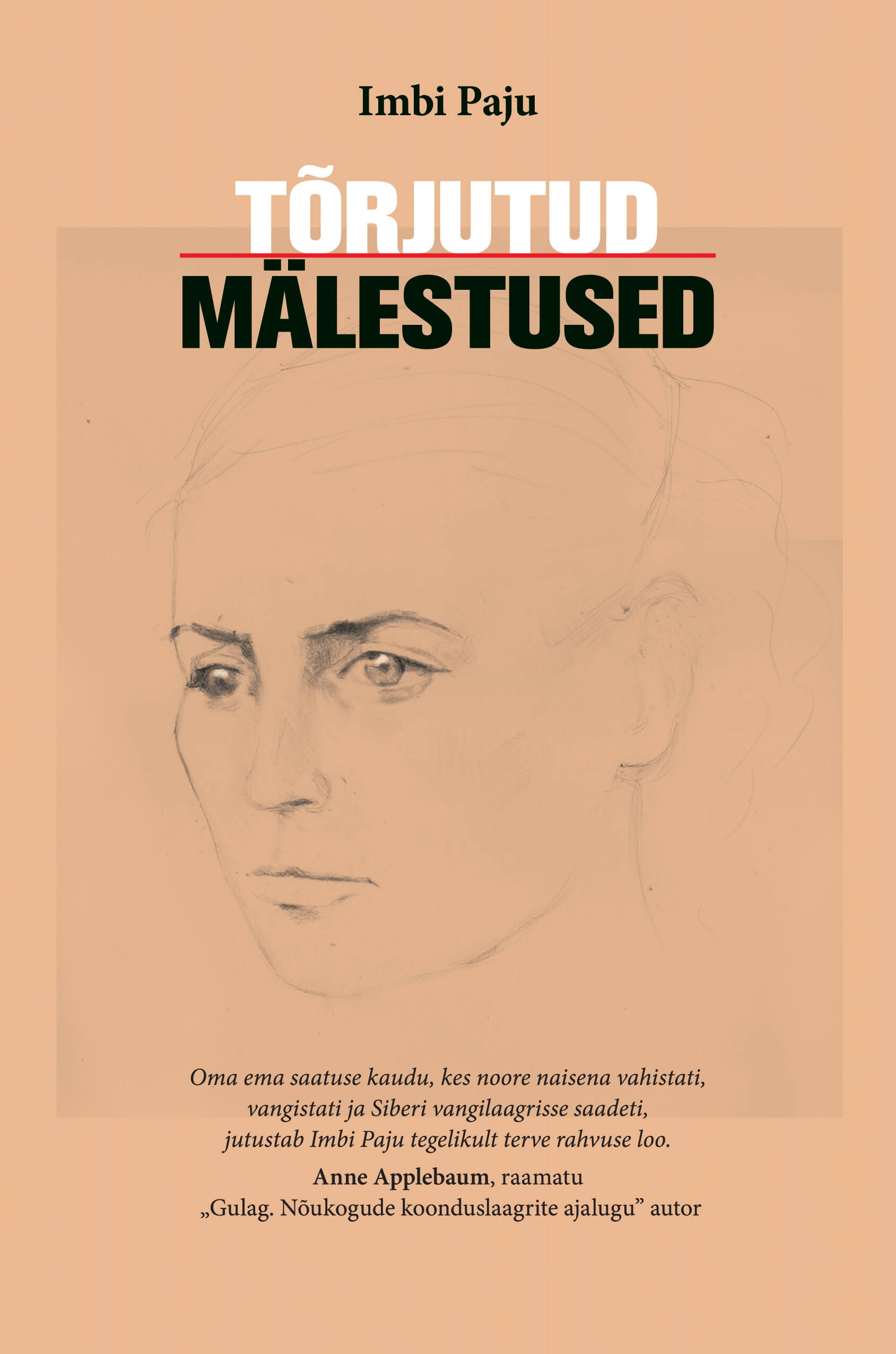
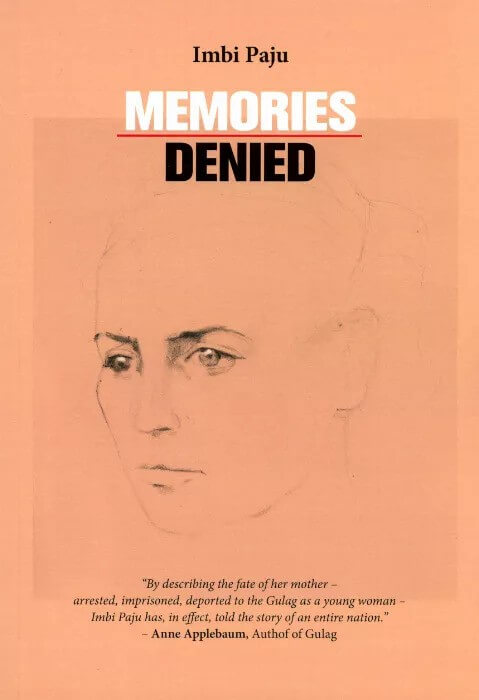
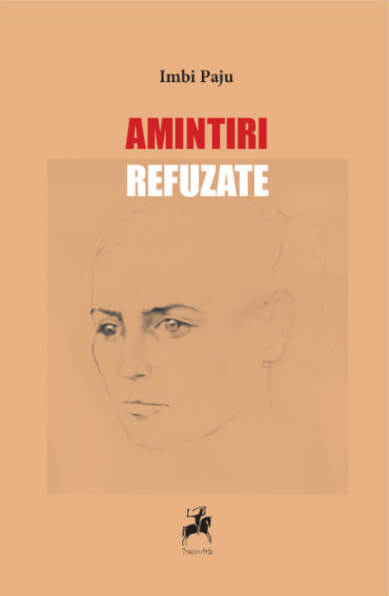
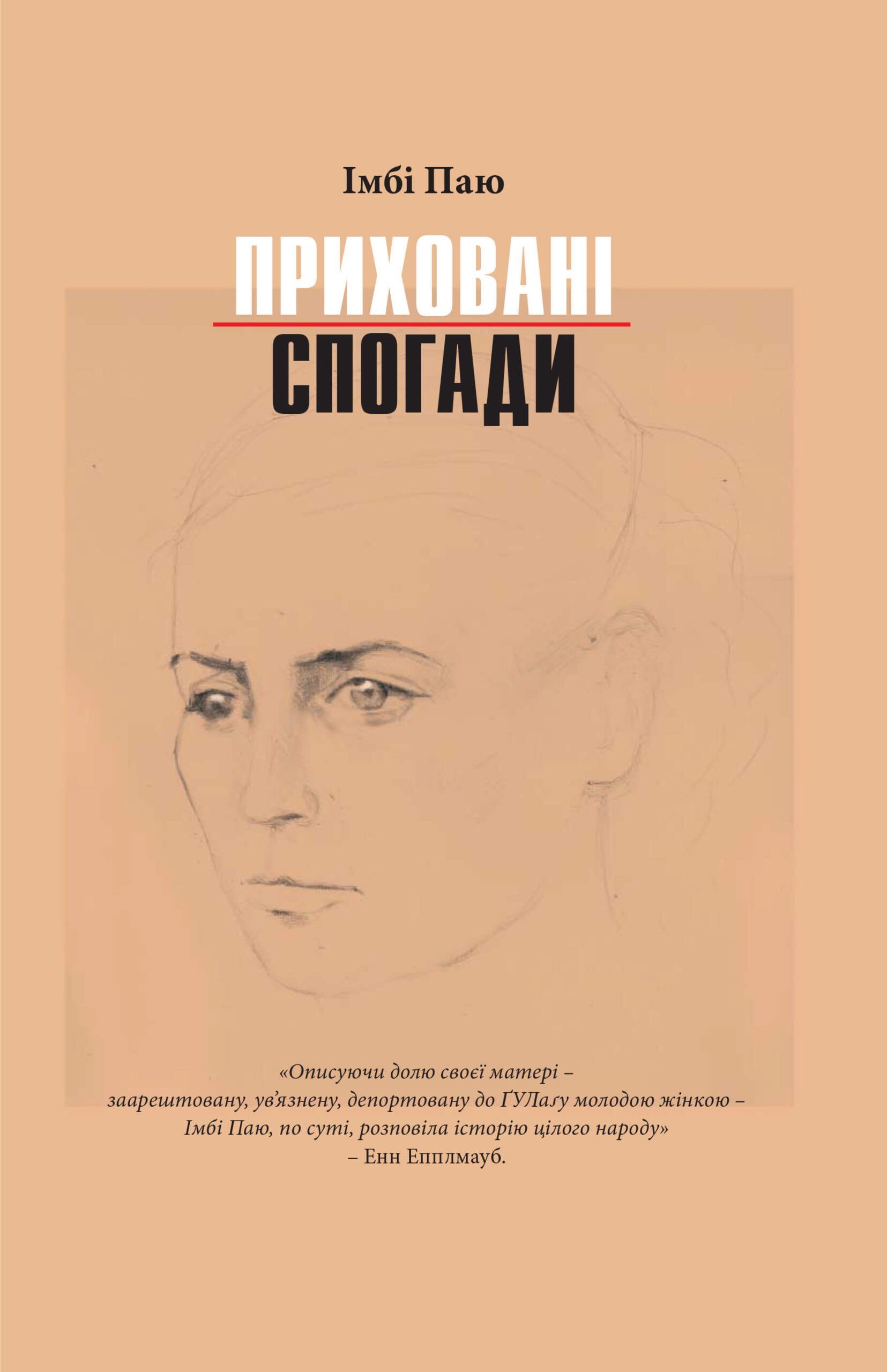
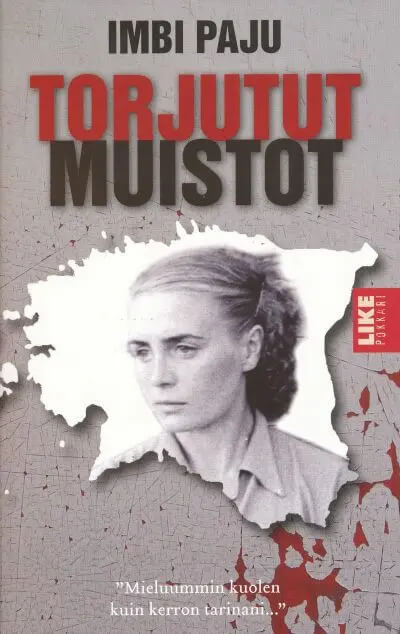
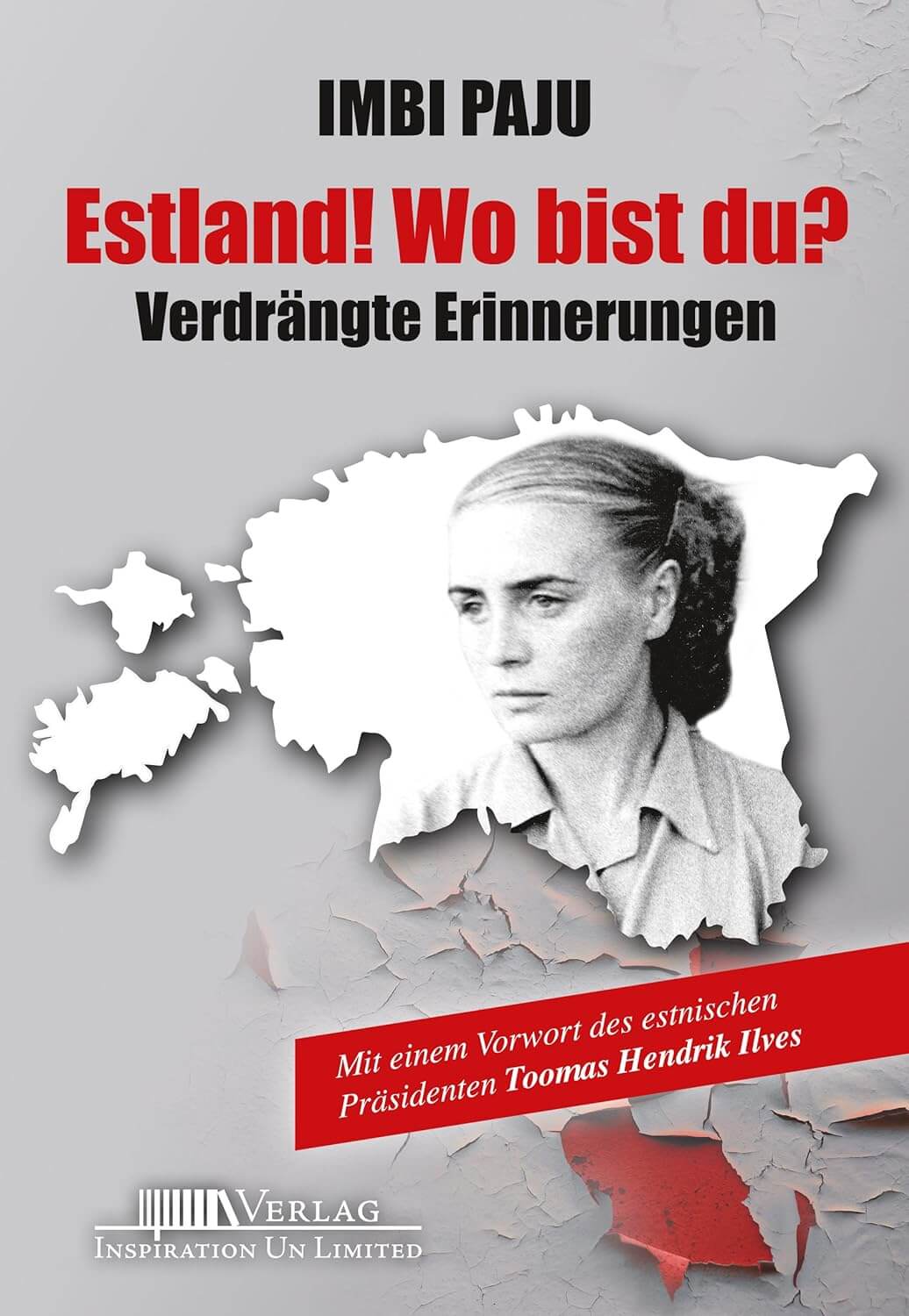
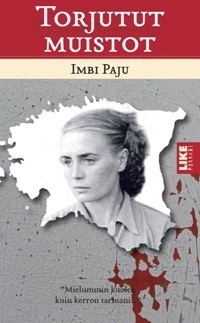
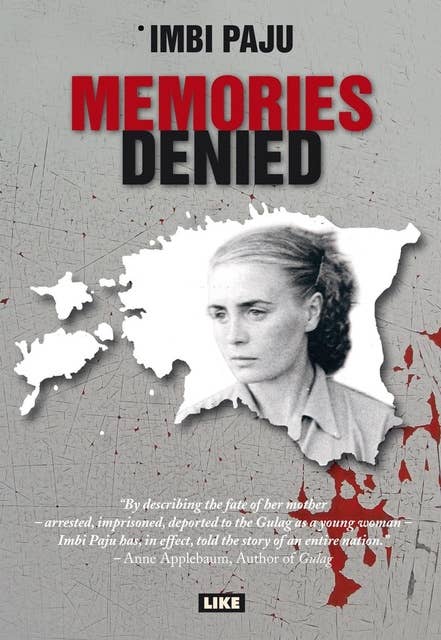
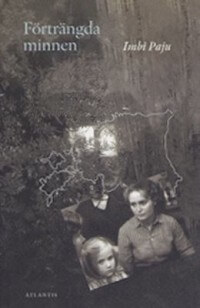
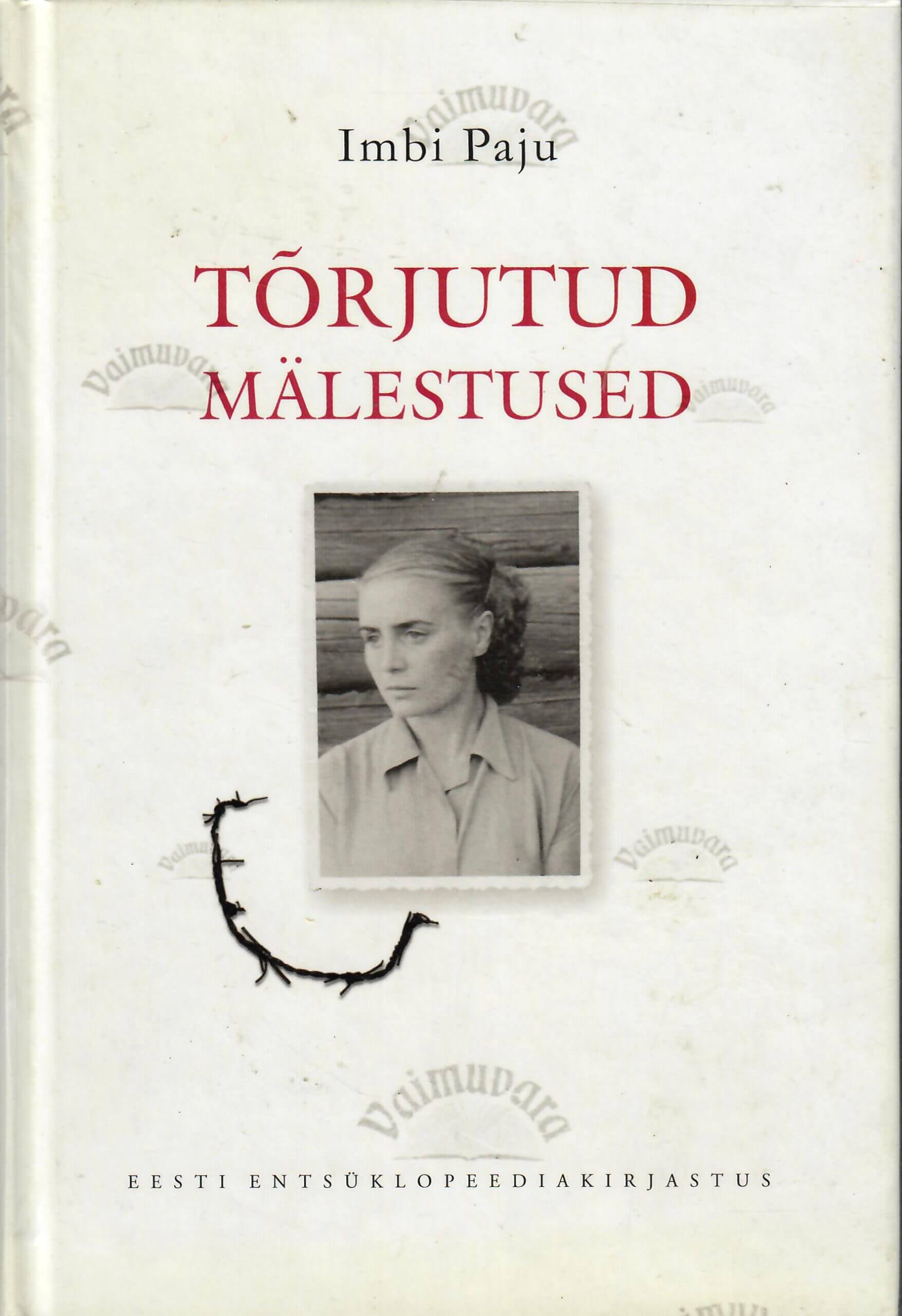
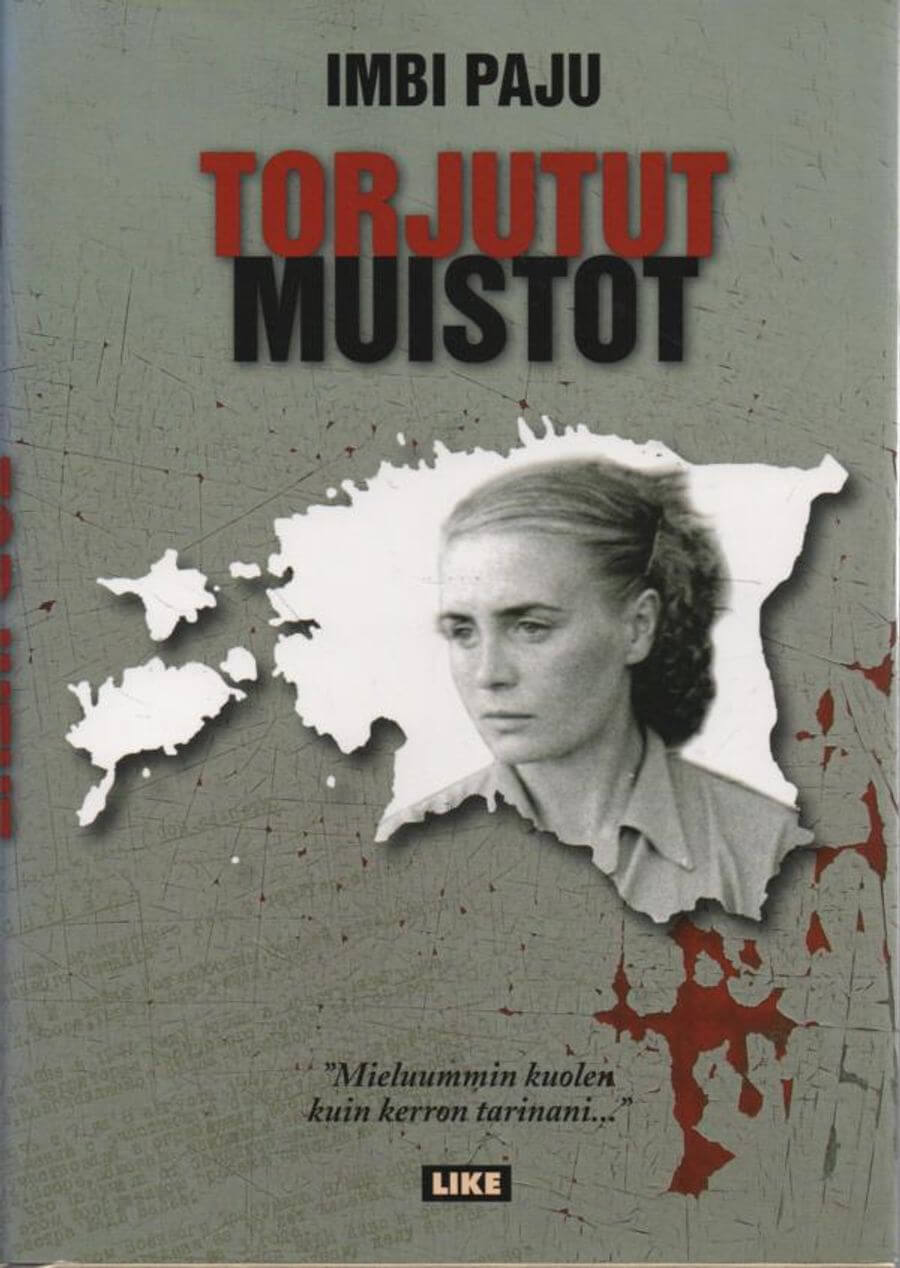
TIMELINE of the publication of Memories Denied in various languages
-
The book Memories Denied is published in Finnish
After the tremendous reception of the documentary film Memories Denied by Finnish audiences, Imbi Paju had the opportunity to expand her creative expression into the world of books. The dark shadows of Soviet history had long been a taboo subject in the Western world, and she had the unique opportunity to bring them out in the open. The Finnish Publishing House Like gave Paju the opportunity to continue exploring the topic in depth, and based on her collected interviews and archival materials, to write a book that would go beyond what can be conveyed in an hour-long documentary film.
From the Estonian-language transcript, Like Publishers, translator Kaisu Lahikainen.
-
The book Memories Denied quickly becomes a bestseller
Translated into the Finnish by Kaisu Lahikainen. It is reprinted several times, leaving its mark on both the Finnish and Estonian cultural landscape.
-
The book Memories Denied is published in Estonian
Published by Estonian Encyclopaedia Publishers.
-
The book Memories Denied is published in Swedish
Imbi Paju’s book Memories Denied is published in Sweden, quickly earning popularity and recognition. At the Gothenburg Book Fair, her Estonian book was the best-selling book by an Estonian author. Published by Atlantis Publishers, translator Heidi Granqvist.
-
The book Memories Denied is published in Russian
Published by Estonian Encyclopaedia Publishers, translator Svetlana Karm.
-
The book Memories Denied is published in English
Published by Like Publishers, translator Tiina Ets.
-
The book Memories Denied is published in German
Published by Inspiration Unlimited, translator Irja Grönholm.
-
The book Memories Denied is published in Romanian
Published by Tracus Arte, translation from the English by Loredana Voicilă.
-
The book Memories Denied is published in Ukrainian
Published by PROSTIR Publishers, translation from Russian and English by Kseniya Zastavska. Presentation at the International Arsenal Book Festival in Kyiv.
-
Publication of Estonian-language reprint of Memories Denied By Gallus Publishing
In a quote on the book’s front cover, Pulitzer Prize-winning historian Anne Applebaum remarks: “By describing the fate of her mother – arrested, imprisoned, deported to the Gulag as a young woman – Imbi Paju has, in effect, told the story of an entire nation.”
-
The book Memories Denied is published in Hungarian
Published by Magyar NEPLO, translated by Bela Javorsky. Due to COVID, the presentation will take place via Zoom.

